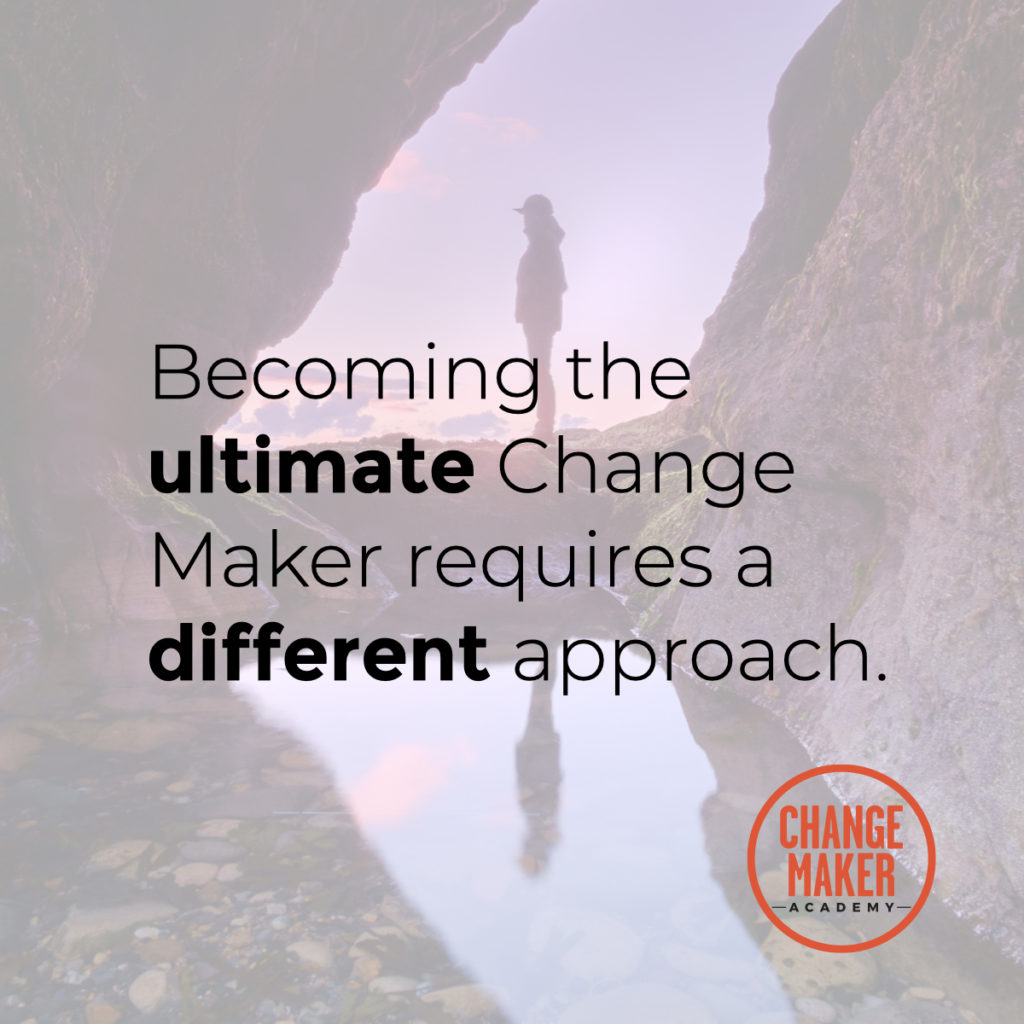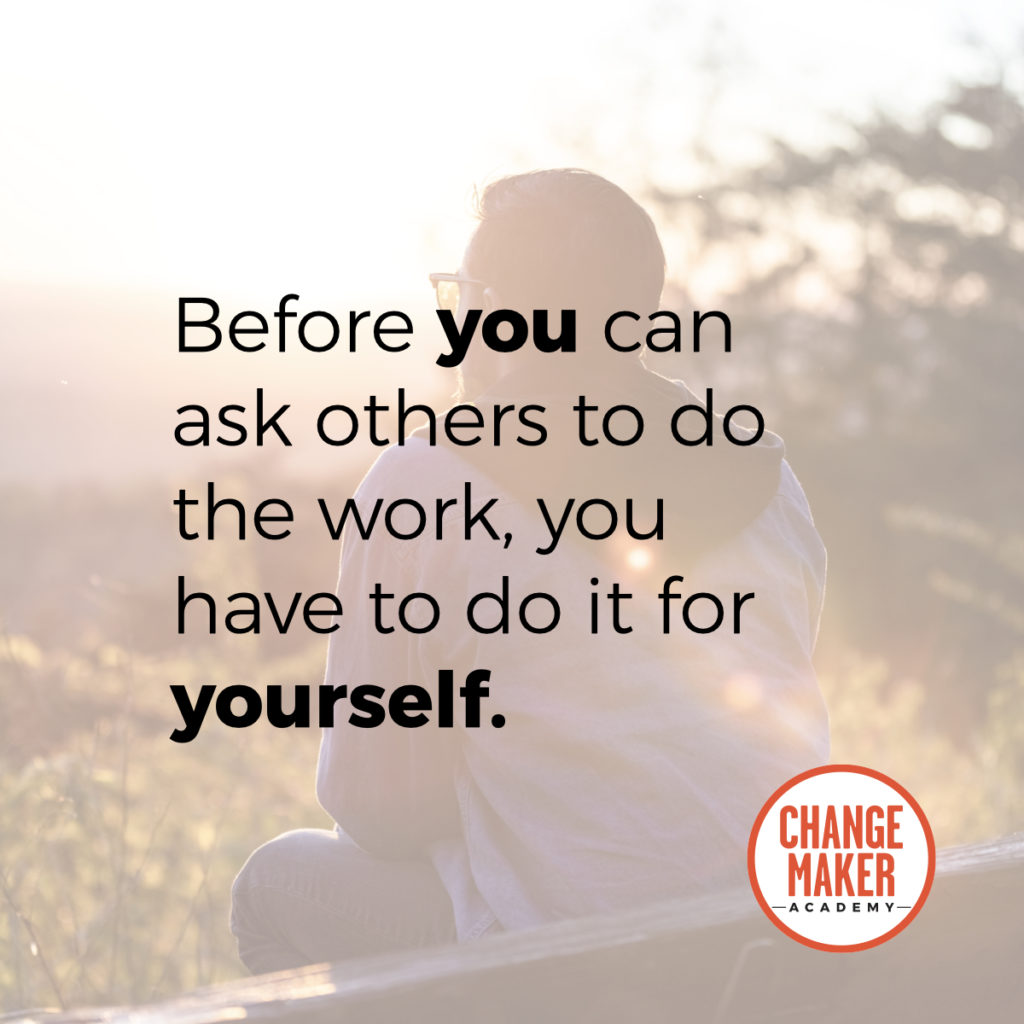Harness The Power Of Your Darkside: What Dr. Jekyll and Mr. Hyde Can Teach You About Workplace Drama
++
If you work in the health and fitness industry, you’re going to be challenged by uncomfortable circumstances. And the way you deal with hard situations will greatly affect your reputation, and your ability to attract clients and work with other professionals in the field. In today’s article, we’ll show you how to handle emotionally charged situations, and become someone who others look up to.
++
Working With Clients Is About More Than Weight Loss And Growing Big Butts
While clients often say they’re coming to you for external reasons – like losing weight or gaining strength – they’re typically coming to you for deeper, emotional reasons (like increasing their confidence, which may require healing deeper parts of themselves).
And, if you’re like many wellness professionals we know…
… you likely joined the field because of your own origin story…
… because you overcame your own obstacles, healed your own trauma, and felt healthier (and better about yourself) as a result.
Because of the nature of the industry, and your chosen profession to help people with their health (which includes sensitive topics paired with crucial conversations), the odds are high that you’re going to be triggered.
The things you care most about – or upset you the most – are usually the things that you hold close to you (sometimes, too close for comfort).
You might feel angry, mad, annoyed, or in other ways emotionally charged by your clients, or by other professionals in the industry (especially those who are acting… unprofessionally).
These reactions can range from mild annoyances, to reactions so severe that they ruin our days and nights.
While most of us almost universally take issue with the other person in these situations — the things they do, and how they trespass against us…
And that’s what we’re going to show you today: how to handle emotionally charged situations, build a bulletproof reputation, and stand out from the crowd.
Using Your Darkside As A Force For Good
As we grow up, we learn to repress certain parts of ourselves in order to fit into society. According to psychologist Carl Jung, these parts are banished to the wilderness of our unconscious psyche, only to return to torment us in small — and large — ways.
According to Jung, trigger moments point to something inside of every human’s mind called, “the shadow.”
This is the unknown Darkside of a person’s personality.
What bothers you in another, is often what bothers you about yourself.
One of the ways the shadow can show up is through “projections” or “transferences” on other people; our perceived personal inferiorities become the perceived moral deficiencies of someone else.
In other words, when someone produces a negative emotional charge in you — when they make you angry or get under your skin somehow — this clue points to your shadow.
(Paradoxically, we can also cut ourselves off from many of our best qualities too. People who create a positive emotional charge in you – or those you admire – may provide insight into your hidden attributes.)
You Will Be Triggered
You will be confronted by your shadow. It’s not a question of if, but when.
And it’s what you decide to do in that uncomfortable moment that will determine the outcome of the situation.
Will you rise above it (and increase your reputation in the process), or be crushed by it (and say words and conduct actions that you may never undo)?
If You Ignore Your Shadow, You Give It Power
Jung writes that, if the shadow remains hidden, “the projection-making factor (the Shadow archetype) then has a free hand and can realize its object — if it has one — or bring about some other situation characteristic of its power.”
In other words:
But how do you become conscious of your unconscious shadow?
Here’s one powerful tool that’ll help.
“How Are You The Problem?”
This is something we heard Brett Bartholomew, Performance Coach, Author, and Speaker, ask a room full of health & fitness pros at a recent conference in Orlando, and we really think it hit the mark.
When someone or something triggers you, this is precisely the moment to take a step back, get curious, and make use of this powerful question.
Asking “How am I the problem?” will bring your shadow to the forefront.
It will help you see your role in the situation. It will give you the power, and the ability, to take ownership of tricky circumstances, so you can write a better ending to your story.
More importantly, it will help you grow into the best version of yourself.
If you don’t ask, “How am I the problem?” you will increasingly be the problem.
What You Can Learn From Dr. Jekyll And Mr. Hyde
A famous literary example of this is the novella, “The Strange Case of Dr. Jekyll and Mr. Hyde.”
Dr. Jekyll creates a potion in an attempt to separate his good side from his darker impulses, but instead discovers a way to transform himself periodically into a deformed monster free of conscience — Mr. Hyde.
Eventually, the darkest, most lustful impulses of Dr. Jekyll possess him entirely, and he becomes Mr. Hyde forever.
If only Dr. Jekyll had recognized his Darkside as an important part of himself, maybe he would’ve been able to “see” the monster inside, and give it compassion and attention, so that it might become less of a monster, and maybe even an ally.
This is a lesson for us to do the same.
If you can identify your own shadow, and see it as a part of you seeking attention, you’ll become more self-aware. You’ll be able to honor, and maybe even harness, the power of your Darkside.
I know, we sound like the Sith right now, but bear with us — even the darkest parts of your personality can be used for good. At the very least, your awareness of it will keep you from acting out your shadow in destructive ways, as was the case for Dr. Jekyll.
3 Common Example Scenarios In Health & Fitness
Before we go into how you can begin to take a look at your shadow, bring awareness to it, and harness its power, we wanted to go over some ways that it might show up in the health and fitness space.
Here are three example scenarios – and potential solutions – to illustrate the different pathways that become available when we get curious about the shadow:
Scenario #1
Another coach gets hired at your gym
Some athletes are drawn to this coach, so they decide to switch over to them. This new coach triggers you because you think they “stole your athletes.”
Your shadow does not let you see the reality of this situation: that you are insecure about your own coaching style, and you are projecting this onto the new coach.
You take the switch of athletes personally because, deep down, you wish you could be as charismatic as your colleague. But, rather than taking ownership of this, you project it onto your coworker and their clients.
As a result, you hold a negative charge with them when you go into the gym, and you act it out by being snarky and passive aggressive at the squat rack.
Potential solution #1
Label your real fear so you can tame it (and grow past it)
Realizing that you are truly afraid of losing more clients, and that what you really want is for people to like you, you decide to get curious about best practices for client retention.
You also take the time to get curious about what makes the new coach desirable and learn from them. You take them out for coffee and get to know them better. And, you praise your former clients for taking control over their training; you affirm their decision to make the switch.
You enhance your reputation – and your skills – in the process.
Scenario #2
You’re annoyed by others making grandiose statements
You see a social media influencer online who brings up a negative charge in you. So much so, that you make it a point to accuse them of taking steroids so that they can make money selling their programs (they’re ripped and they’re rich, so they obviously cheated to get there, right?).
Rather than taking a look at your own shadow, and seeing that you are envious of their success (and that you do many of the same things that they do), you spend your time ranting about them (and others like them), on social media.
Potential solution #2
Keep your goal in mind
Realizing that what you really want is to be successful yourself — and with impeccable integrity — you use your energy to create content that is more directly in line with your values.
You create products and services you’re proud of, and you offer them to the world.
Scenario #3
Your client doesn’t stick to your plan
Your client produces a negative charge in you because they don’t follow through with your training plans, and they’re constantly questioning your advice.
Rather than owning your insecurities as a coach (and your lack of control over your client’s actions), you decide to fire this client because you create a story in your mind that they’re not motivated.
As a result, you miss a chance to both make money for your practice and help someone change.
Potential solution #3
Become a change agent
Recognizing that what you really want for yourself is to be a better coach, you decide to do a deep dive on change psychology. You harness your shadow and use it to fuel your practice of Motivational Interviewing skills.
Now, your difficult client sessions become a sandbox for you to hone your craft and practice being a world-class coach.
We All Have Work To Do
Now, just to be clear: we’re all dealing with our shadows (and some of us more consciously than others).
So, in the above situations, we can also assume that the people who trigger us have their own work to do when it comes to taking ownership of their Darkside.
But…
… and ask, “How am I the problem?”
Practicing “doing better” is the only way to “become better.”
5 Steps To Capture Your Shadow (Better Than Peter Pan)
While this email is in no way extensive, or a substitute for a good friend, supportive group, or a mental health professional, we’d like to share a step-by-step process to help you identify – and take ownership of – your shadow.
With practice, you’ll be able to tap into its power, and live life with more ease, awareness, and conscious authority over your actions.
Step #1
Begin to write about what you absolutely hate in other people
It may be something that irritates you strongly or irrationally. It might be helpful to think of people who trigger you or disgust you. What do they do that brings these feelings about? What about those things brings up these feelings for you? Why? Describe it in full detail. Put it out there with no filter.
Step #2
Get curious about it
What about this irritates you? What are the nuances of this irritation? How does it make you feel? When have you felt this way before? When was the first time you remember feeling this way? What was going on then? What stories have you adopted about this? Do you feel shame around this part of you?
Step #3
Take ownership
How are you guilty of the same things that you say irritate you about this person? Is there a part of you that wishes you could be this way?
Be brutally honest about how you show up in your life like this — or how you wish you could be more like this — even in small ways. While you’re implementing these steps, remember to practice self-compassion by taking on the perspective of a wise friend rather than a persecuting bully.
Step #4
Identify what you really want
What do you want for yourself, truly? What do you want with your relationships with other people? How do you wish you could feel about it? These questions will help you take action in step 5.
Step #5
Identify a small action you can take, or a way to remind yourself of your shadow
Is there someway you can externalize your shadow to remind you of its existence (like the image of Peter Pan, below)? Can you take your annoying colleague out to dinner? Can you respond differently to their actions next time you’re triggered? Knowing that you do the same things that you despise in others, how can you reframe your experience and relate to your colleagues, friends, or loved ones differently?

Your Shadow And Your Emotions Aren’t Bad
In fact, they’re both necessary components in the acquisition of wisdom.
When you’re feeling reactive, take a deep breath, pause, and get curious. Ask yourself why the situation is upsetting you, and what role your shadow is playing.
In your quest for answers, you’ll cultivate a deeper understanding of yourself as you balance your emotions with your logical self.
Over time, you’ll gain a deeper understanding of your shadow — and your triggers — so that the space between stimulus and response grows. It will become easier and easier to choose a wise response (rather than react emotionally).
Gain Control Over Tough Situations
Carrying emotional charges is exhausting, and it can keep you from fully realizing your potential in many areas of your life (including at work).
Ultimately, if you’re unaware of your shadow, it will increase in strength and unconsciously direct your actions. You’ll continue to blame others for your problems, and, in the worst cases, you’ll become possessed by the destructive forces you despise — you’ll slowly become your own version of Mr. Hyde.
As Carl Jung famously stated: “..it will direct you and you will call it fate.”
All Of This Is Hard, Ego-Crushing Work
When we’re triggered, our strong emotions keep us from seeing what is really true about ourselves and about other people. No one wants to be wrong, or take ownership of how they are the problem (at least, not at first). Like anything else, this practice is a skill that gets a little bit easier with time.
Through this difficult work what emerges is pure gold in the form of better relationships with yourself and with other people, and the ability to respond to situations with conscious authority, rather than unconscious hi-jacking.
From this work, a more mature – and wise – self is cultivated.
Your shadow is a part of you that wants to be seen and heard. The more you attempt to hide it, or ignore it, the more powerful it becomes. The only way to lessen its power is to recognize it; to give it an audience and to listen to what it has to say.
Then, and only then, will you be able to see what is true, and what it is that you really want, so you can take action and get it.
What This Means For You
When you get triggered, get curious.
Think about why you’re irritated and who you show up in similar ways as the person who is bothering you. Asking yourself, “How am I the problem?” can help.
Think about what you really want and respond accordingly.
Define your desired outcome and how you want to show up in the world. Identify a small action you can take in support of your desired future, like getting to know your annoying colleague, rather than speaking poorly about them.
Want to learn more?
Then check out Dr John Berardi’s one-of-a-kind book – winner of the 2021 Axiom Business Book of the Year – Change Maker: Turn Your Passion For Health and Fitness into a Powerful Purpose and a Wildly Successful Career.
The health and fitness industry is huge, highly competitive, and often confusing to navigate. Dr. Berardi helps you make sense of the chaos, laying out a clear roadmap to help you achieve both personal and professional success.



